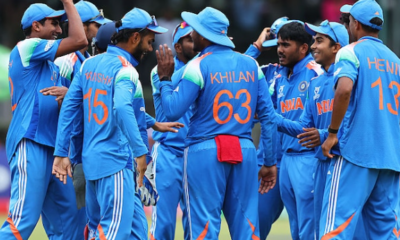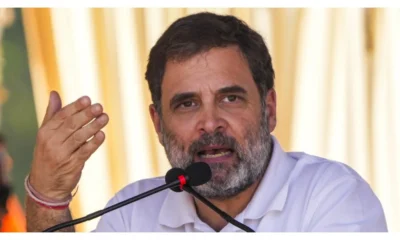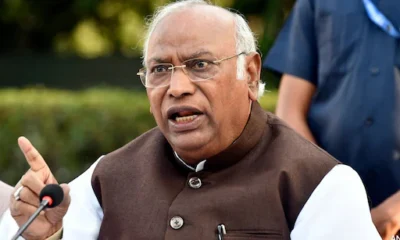Panellists feel that the centre’s bold initiatives have resulted in some good, but it is still a long road ahead to prosperity for all
What do the people think of the performance of the Modi government, in view of the sweeping and historic economic and financial decisions taken by the PM? Demonetisation, GST, increase in digital transactions, opening of Jan Dhan accounts, and enforcing the use of Aadhaar cards have been some key highlights of the rule of the Modi government. Ratings agency Moody’s has given the nod to ease of doing business in the country.
APN’s popular debate, Mudda, discussed the issue of the impact of the economic policies on the common man, on the occasion of Dhan Teras. Anchorperson Anant Tyagi posed questions to panellists including BJP’s Harish Shrivastav, Congress’s Saif Khan, SP’s KC Jain, economists Sharad Kohli and Saurabh Aggarwal, and APN consultant Govind Pant Raju.
Kohli said: “A lot of plans have been announced. The intent of the government was fine, but the plans really didn’t yield positive results. Inequality of income is too high. Some people are too rich and some can’t even afford two meals a day. In France, for example, the poor are not that badly off.”
Aggarwal said: “Crude oil prices have gone up. So what this government achieved in the last four years has been offset by the rise in crude oil prices. The economy has suffered a jolt. Pucca homes and toilets have improved the life of the common man, but we have to see the overall picture. One trillion dollar of digital transactions is expected. The Mudra scheme is expected to benefit the common man.”
Khan said: “I disagree with all this. People are using cash again in a big way. We were doing better than China earlier, India being the fastest growing economy, but now we are behind China. We have lost 15 lakh jobs in four months alone, people queuing up during the note ban days resulted in loss of man hours. The note ban also entailed huge printing costs. In UPA-1 and UPA-2, joblessness was not such a big problem as it is now.”
Kohli said: “The term ‘fastest growing economy’ and ‘sixth largest economy’ are different and mean different things, so let’s not confuse the two. The common man has been better off in some pockets. But how can we compare last 60 years’ progress with 4.5 years of Modi rule?”
Aggarwal said:”Small businesses suffered because of the new GST rule. GST is good but the system needs to improve.”
Khan said: “The GDP growth average is poorer than what it was under UPA-1 and UPA-2.”
Jain said: “The country must progress and some changes are welcome. But the country comprises people, and the common man can’t be in need of food and employment. People are dying of hunger. The note ban did not help in curtailing black money. Petroleum prices have affected the economy.”
Shrivastav said: “Every person can see the effect of the note ban. Accountable money has gone up, and that’s why India has been called the fastest growing economy. The stature of the country has gone up globally. The poor can feel the difference with Jan Dhan accounts.”
Raju said: “The dollar has gone up, rupee is down, share market is down, and foreign money in share market is down. Economy can go severely down, the way it is being said about Iran. But we can say one thing with certainty, and that is, that all ministers are clean in the Modi government, and none has been caught in some corruption scam, as was the case earlier, so this has helped the image of the government.”
Kohli said: “Under the new digital regime, the corrupt can be nabbed with relative ease. However, the government needs to take out a white paper on the ‘jobless growth scenario’, and on the Mudra Yojana.”
Aggarwal said:”Employment is not going up the way it should have. Right now we are focusing on a mixed model where we have a mix of skill and knowledge. Our skill level has not gone up the way it should have. The focus should more clearly be on entrepreneurship. The government has said that two crore jobs will be generated every year; we are still to see that. But I will still give the Modi government eight marks out of ten.”
—Compiled by Niti Singh Bhandari


 Latest world news17 hours ago
Latest world news17 hours ago
 India News18 hours ago
India News18 hours ago
 India News18 hours ago
India News18 hours ago
 Latest world news12 hours ago
Latest world news12 hours ago
 Cricket news12 hours ago
Cricket news12 hours ago
 India News12 hours ago
India News12 hours ago
 Latest world news7 hours ago
Latest world news7 hours ago
 Cricket news7 hours ago
Cricket news7 hours ago















